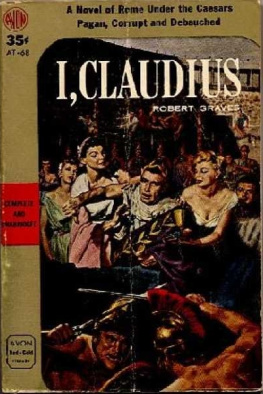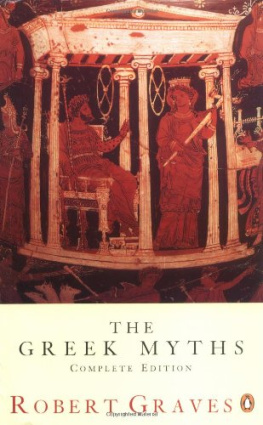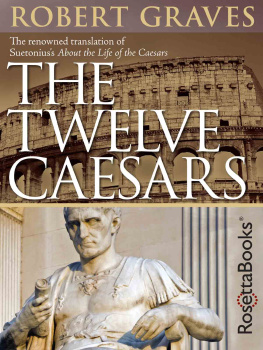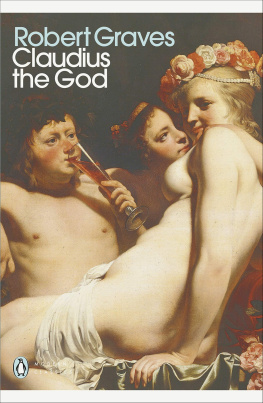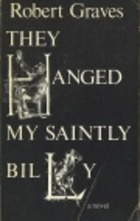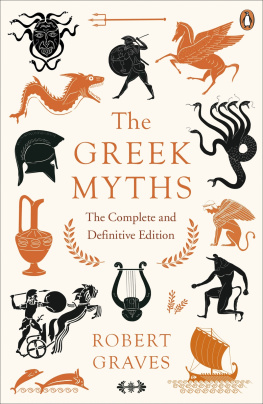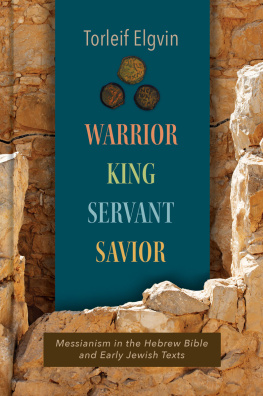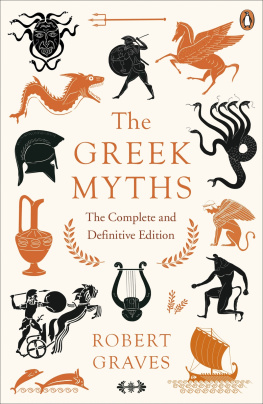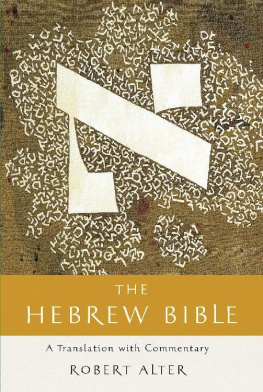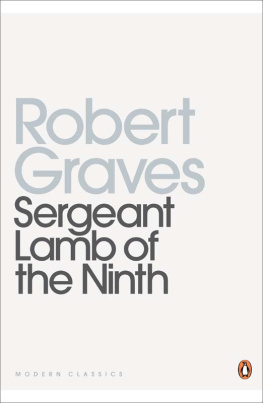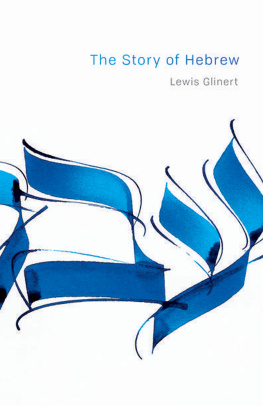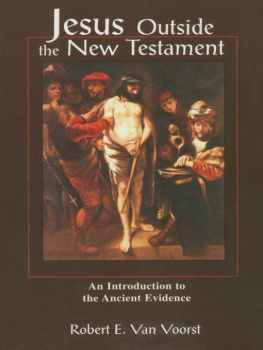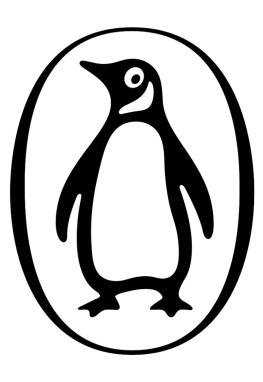Hebrew Myths
The Book of Genesis
Robert Graves
Hebrew Myths
Copyright 1964 by The Trustees of the Robert Graves Copyright Trust and Daphne Patai
Copyright 1963, 1964 by International Authors NV and Dr Raphael Patai, renewed 1992 by Beryl Graves and Dr Raphael Patai
Cover art, special contents, and Electronic Edition 2014 by RosettaBooks LLC
All rights reserved. No part of this book may be used or reproduced in any form or by any electronic or mechanical means, including information storage and retrieval systems, without permission in writing from the publisher, except by a reviewer who may quote brief passages in a review.
Cover jacket design by Carly Schnur
ISBN e-Pub edition: 9780795337154
INTRODUCTION
Myths are dramatic stories that form a sacred charter either authorizing the continuance of ancient institutions, customs, rites and beliefs in the area where they are current, or approving alterations. The word myth is Greek, mythology is a Greek concept, and the study of mythology is based on Greek examples. Literalists who deny that the Bible contains any myths at all are, in a sense, justified. Most other myths deal with gods and goddesses who take sides in human affairs, each favouring rival heroes; whereas the Bible acknowledges only a single universal God.
All pre-Biblical sacred documents in Hebrew have been either lost or purposely suppressed. They included The Book of the Wars of Yahweh and the Book of Yashar, epic accounts of the Israelites desert wanderings and their invasion of Canaan. That these books were written in the early poetic Hebrew style, can be seen from the brief fragments quoted from them in Numbers XXI. 14; Joshua X. 13 and 2 Samuel I. 18. A third book, reputedly compiled in seven parts at Joshuas orders, described Canaan and its cities (Joshua XVIII. 9). The Book of the Story of Adam (Genesis V. 1) suggests a detailed account of the first ten generations from Adam to Noah. The Book of Yahweh (Isaiah XXXIV. 16) seems to have been a mythological bestiary. Several other lost books mentioned in the Bible, such as the Acts of Solomon, the Book of Genealogy, the Chronicles of the Kings of Judah, Of the Kings of Israel, Of the Sons of Levi, must have contained many mythic references.
Post-Biblical sacred documents are abundant. In the thousand years after the Bible was first canonised, the Jews of Europe, Asia and Africa wrote prolifically. Theirs were either attempts to clarify the Mosaic Law; or historical, moralistic, anecdotal and homiletic comments on Biblical passages. In both cases the authors included much mythic material, because myth has always served as a succinct validation of puzzling laws, rites and social customs.
Now, although the canonical books were regarded as written by divine inspiration and the least taint of polytheism had therefore to be exorcized from them, the apocryphal books were treated more leniently. Many suppressed myths were also allowed to re-emerge in the unquestionably orthodox context of the post-Biblical midrashim. For example in Exodus we read that Pharaohs horses, chariots and horsemen pursued the Children of Israel into the midst of the sea (Exodus XIV. 23). According to one midrash (Mekhilta diR. Shimon 51, 54; Mid. Wayosha 52) God assumed the shape of a mare and decoyed the ruttish Egyptian stallions into the water. If the mare-headed Goddess Demeter had been described as drowning King Pelopss chariotry in the River Alpheus by such a ruse, this would have been acceptable Greek myth; but to the pious reader of the midrash it was no more than a fanciful metaphor of the lengths to which God could go in protecting His Chosen People.
The Bible itself allows us only brief hints of its lost mythological riches. Often the reference is so terse that it passes unnoticed. Few, for instance, who read: And after him was Shamgar ben Anath who smote of the Philistines six hundred men with an ox-goad, and he also saved Israel (Judges III. 31), connect Shamgars mother with the bloodthirsty Ugaritic Love-goddess, the maiden Anath, in whose honour Jeremiahs priestly town of Anathot was named. The myth of Shamgar is irrecoverable, yet he must have inherited his virgin mothers warlike prowess; and the ox-goad with which he smote the Philistines was doubtless a gift from her father, the Bull-god El.
Genesis nevertheless still harbours vestigial accounts of ancient gods and goddessesdisguised as men, women, angels, monsters, or demons. Eve, described in Genesis as Adams wife, is identified by historians with the Goddess Heba, wife of a Hittite Storm-god, who rode naked on a lions back and, among the Greeks, became the Goddess Hebe, Heracless bride (see 10. 10). A prince of Jerusalem in the Tell Amarna period (fourteenth century B.C. ) styled himself Abdu-Hebaservant of Eve (see 27. 6). Lilith, Eves predecessor, has been wholly exorcized from Scripture, though she is remembered by Isaiah as inhabiting desolate ruins (see 10. 6). She seems, from midrashic accounts of her sexual promiscuity, to have been a fertility-goddess, and appears as Lillake in a Sumerian religious text, Gilgamesh and the Willow Tree (see 10. 36).
There are pre-Biblical references to the angel Samael, alias Satan. He first appears in history as the patron god of Samal, a small Hittite-Aramaic kingdom lying to the east of Harran (see 13. 1). Another faded god of Hebrew myth is Rahab, the Prince of the Sea, who unsuccessfully defied Jehovah (Yahweh), the God of Israelmuch as the Greek God Poseidon defied his brother, Almighty Zeus. Jehovah, according to Isaiah, killed Rahab with a sword (see 6. a). A Ugaritic diety worshipped as Baal-Zebub, or Zebul, at Ekron was consulted by King Ahaziah (2 Kings 1. 2 ff) and centuries later the Galileans accused Jesus of traffic with this Prince of the Demons.
Seven planetary deities, borrowed from Babylon and Egypt, are commemorated in the seven branches of the Menorah, or sacred candlestick (see 1. 6). They were combined into a single transcendental deity at Jerusalemas among the Heliopolitans, the Byblians, the Gallic Druids and the Iberians of Tortosa. Scornful references to gods of enemy tribes humiliated by Jehovah occur throughout the historical books of the Bible: such as the Philistine Dagon, Chemosh of Moab, and Milcom of Ammon. Dagon, we know from Philo Byblius to have been a planetary power. But the God of Genesis, in the earliest passages, is still indistinguishable from any other small tribal godling (see 28. 1).
Greek gods and goddesses could play amusing or dramatic parts while intriguing on behalf of favoured heroes, because the myths arose in different city-states which wavered between friendship and enmity. Yet among the Hebrews, once the Northern Kingdom had been destroyed by the Assyrians, myths became monolithic, and centred almost exclusively on Jerusalem.
In Biblical myth, the heroes sometimes represent kings, sometimes dynasties, sometimes tribes. Jacobs twelve sons, for instance, seem to have been once independent tribes which banded together to form the Israelite amphictyony or federation. Their local gods and populations were not necessarily of Aramaean race, though ruled by an Aramaean priesthood. Only Joseph can be identified, in part, with a historical character. That each of these sons, except Joseph, is said to have married a twin-sister (see 45. f), suggests land-inheritance through the mother even under patriarchal government. Dinah, Jacobs only daughter born without a twin, is best understood as a semi-matriarchal tribe included in the Israel confederacy. The
Next page

